Farm and Wild Animals
Animals breed and kept for agricultural reasons are known as farm animals. Cows, chickens, pigs, geese, and other animals are among them. Wildlife farming is the practise of keeping traditionally undomesticated animals in an agricultural setting in order to produce live animals for canned hunting and as pets, as well as commodities such as food and traditional medicine, as well as materials such as leather, fur, and fibre. Wildlife farming, according to some conservationists, can help endangered species avoid extinction by lowering the burden on wild animal populations, which are frequently hunted for food. The introduction of zoonotic diseases has been attributed to wildlife farming, such as the SARs outbreak, which has now been linked to civet farming.
Many agricultural systems include animals. Domesticated animals, such as livestock, play an important part in varied farming systems, both because they produce food and because they cycle nutrients around the farm. Wild animals can aid in the control of pest populations while also contributing to biodiversity. While there is currently a lack of scientific understanding of how animals contaminate produce and proof of animals causing food safety outbreaks, a few recent outbreaks have implicated animals as a likely source of contamination. Animals raised on farms for meat, dairy products, or to assist farmers are known as farm animals.
- Benefits
- Risks
- Farm Animals
- Zoonotic Diseases
- Disease Management

Marco Polettini
DVM, Italy
Andreia Freitas
INIAV/REQUIMTE, Portugal
Andreia Freitas
INIAV/REQUIMTE, Portugal
Kedibone Gloria Kgosana
Sefako Makgatho Health Sciences University, South Africa
Nnenna Ugwu
Anglia Ruskin University, United Kingdom
Rubens Dias de Melo Junior
Universidade Federal de Goiás, BrazilSubmit your abstract Today
Important Alert:
X


Title : Analyzing veterinary medicine residues in food: A comprehensive guide
Andreia Freitas, INIAV/REQUIMTE, Portugal
Title : Quantifying changes in facial expression following hot-iron disbudding under procaine hydrochloride and meloxicam treatment in Holstein dairy calves
Nnenna Ugwu, Anglia Ruskin University, United Kingdom
Title : Trypanosoma vivax in and outside cattle blood: Parasitological, molecular, and serological detection, reservoir tissues, histopathological lesions, and vertical transmission evaluation
Rubens Dias de Melo Junior, Universidade Federal de Goiás, Brazil
Title : Characterization of porcine rotaviruses in the Czech Republic
Romana Moutelikova, Veterinary Research Institute, Czech Republic
Title : Determination of Circulating Foot-and-Mouth Disease Virus Serotypes in Kenya (2023)
Hellen Mutua, Foot and Mouth Disease National Reference Laboratories, Kenya
Title : Welfare for Amazonian wild animals
Eliane Cardoso Carvalho Moraes, Jungle Warfare Training Center/ Army, Brazil